Article not found
This article is no longer available. But don't worry—we've gathered other articles that discuss the same topic.

MTA board amends FY2025–2030 Capital Investment Plan; funding rises to $1.5 billion with Choose How You Move and TDOT grants
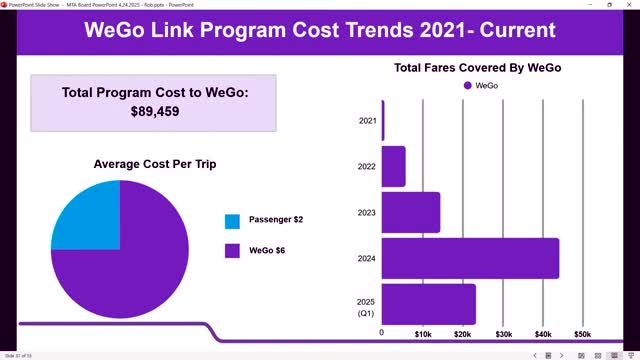
MTA board approves reserve fund policy to cover short-term state and federal grant timing gaps
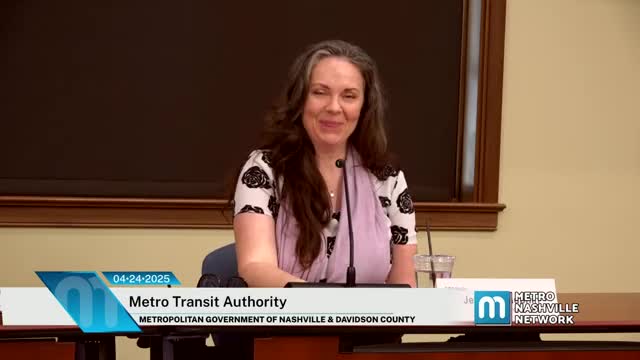
MTA board authorizes $10.3 million enterprise asset management contract with Trapeze
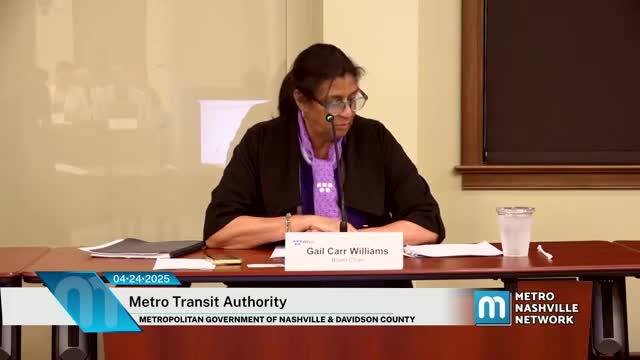
Votes at a glance: MTA board meeting (April 2025) — minutes, resolutions, contract and service approvals
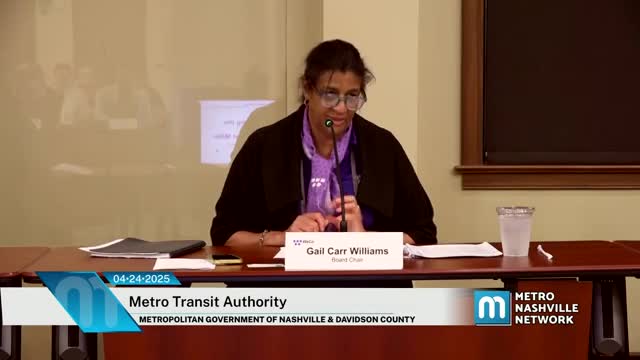
MTA board honors former member Janet Miller with lifetime free‑ride resolution
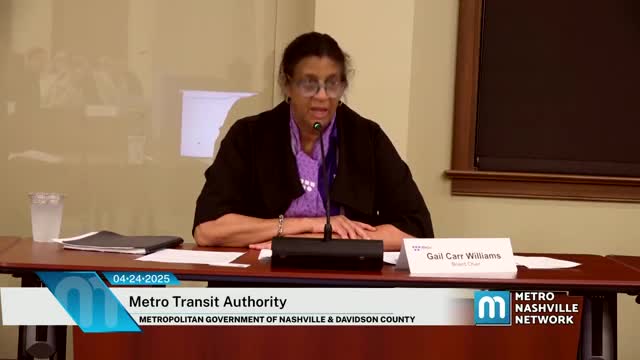
Metro Police names Captain Brian Williams transit liaison; board welcomes first transit policing unit lead
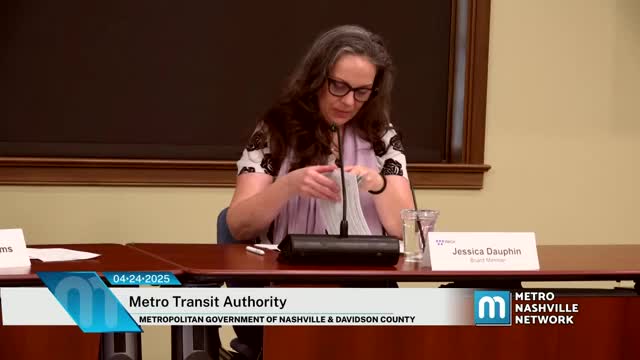
Annual fleet maintenance audit shows defect rates improving; MTA pilots AI for predictive maintenance

